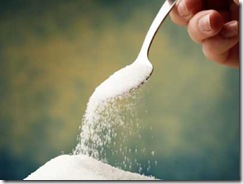People know that sweets are bad for them, but in spite of this “knowing” of the dangers of eating too many sweets, there is still an undeniable craving that just doesn’t go away. Or can it? If sweets are really bad for you than why are you craving them all of the time?  The answer is actually simpler than one would think: we weren’t designed to eat ample sweets. Sweet cravings indicate a blood sugar imbalance. By addressing this imbalance you can significantly curb your sugar cravings.
The answer is actually simpler than one would think: we weren’t designed to eat ample sweets. Sweet cravings indicate a blood sugar imbalance. By addressing this imbalance you can significantly curb your sugar cravings.
Consider reactive hypoglycemia
We like sweets—sugar, honey, agave, maple syrup, and fruit—because they give us a burst of energy and even make us feel euphoric. But feeling like you can’t live without them can signal a blood sugar disorder, and a risk for diabetes later in life.
One common reason for sweet cravings is reactive hypoglycemia, which occurs when blood sugar drops too low. Symptoms include feeling spacey, lightheaded, weak, irritable, shaky, or nauseous. Reactive hypoglycemia prompts a sugar craving in an attempt to quickly raise blood sugar again.
The problem is sweets raise blood sugar too high—our bodies weren’t designed to run on caramel lattes, candy bars, fruit smoothies, or pastries. These foods cause blood sugar—and energy levels—to skyrocket and then nosedive. After the crash the sugar cravings kick in again.
Blood sugar roller coaster leads to other health problems
Many people ride this roller coaster of low and high energy swings throughout the day. Reactive hypoglycemia not only leads to sugar cravings but also a list of other metabolic disorders, including PMS, poor immune function, digestive problems, problems falling asleep or staying asleep, migraines, depression, and a raised risk for diabetes.
Changing your diet to get a grip on cravings
The best way to manage reactive hypoglycemia is to focus your diet on protein, healthy fats, and non-starchy vegetables. Eat breakfast and do not go so long without eating that you crash. Minimize your intake of starchy foods such as grains and potatoes to avoid spiking blood sugar. And of course avoid all sweets, even natural ones, or too much fruit.
The adjustment period can be difficult at first but once you stabilize your blood sugar those sugar cravings should calm down. Also, certain botanicals and nutritional compounds have been shown to help balance blood sugar and curb the cravings.
Reactive hypoglycemia is but one issue that can drive sugar cravings.
Recent Comments